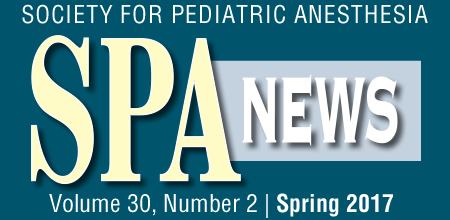spa-aap reviews
Saturday Session II: Transforming our practice (and ourselves) through mindfulness
Reviewed by Erin S. Williams, MD, FAAP
Texas Children’s Hospital
Mindfulness in Practice: Enhancing patient care while taking care of yourself
Saturday’s session II introduced the topic of “mindfulness” to the audience. Michael J. Baime, MD (Perelman School of Medicine, University of Pennsylvania) is the director of the Penn Program for Mindfulness located at the University of Pennsylvania Perelman School of Medicine. This thought provoking session on the concept of mindfulness was moderated by Dr. John Fiadjoe.
First, when it comes to understanding mindfulness one must first know the definition. Dr. Baime defined this state as meditation or a structured mental process that studies and deepens awareness by bringing it to rest on a stable focus. Dr. Baime also emphasized the importance of understanding the meaning of, “mind” - also known as awareness. It’s this awareness that can become much more once it learns to rest. Additionally, relaxation is achieved once the mind is relieved from stress. Ultimately, we should not only strive for relaxation but also a deeper awareness, not just to one experience but also to inner life, the world, and others we encounter.
Dr. Baime went further to describe the three-minute mindfulness break which encompasses the following:
- Becoming aware,
- Gathering and
- Expanding.
Becoming aware involves focusing on one’s posture, thoughts feelings and even body sensation. Gathering involves redirecting one’s attention to focus on the intricacies and details of the physical sensations involved with breathing; and finally step three entails expanding ones awareness of the body as a whole. Dr. Baime even commented on the fact that mindfulness doesn't necessarily occur easily, it takes effort, and mindfulness is something that can be utilized to increase one’s focus.
The mechanism behind mindfulness was discussed comparing the areas of the brain involved in active meditation. SPECT images of the brain reveal structural brain changes in the right middle and superior frontal sulci as well as the right anterior insula.
Interestingly, a study by Kerr et al demonstrated increased cortical thickening during meditation. Such structural enhancement of the brain due to mindfulness has been shown to increase attention, working memory, and resistance to distraction - precisely concepts that are crucial for physicians to master.
Given the myriad of patients that one can encounter in a day, it can be challenging to maintain the focus needed during each patient visit. However, Dr. Baime shared that mindfulness employs “present moment attention” which is what is needed in the practice of medicine. Additionally, he noted that without mindfulness the patient care experience lacks depth, empathy, and compassion, which can unfortunately lead to alienation, fatigue, and burnout.
Dr. Baime encouraged the audience to not only utilize mindfulness when caring for patients, but when caring for anyone. He reminded the audience to employ empathy in their daily experience with others. One statement on one of his slides summed it up best stating, “It doesn’t matter how good we are if we’re not paying attention.”






